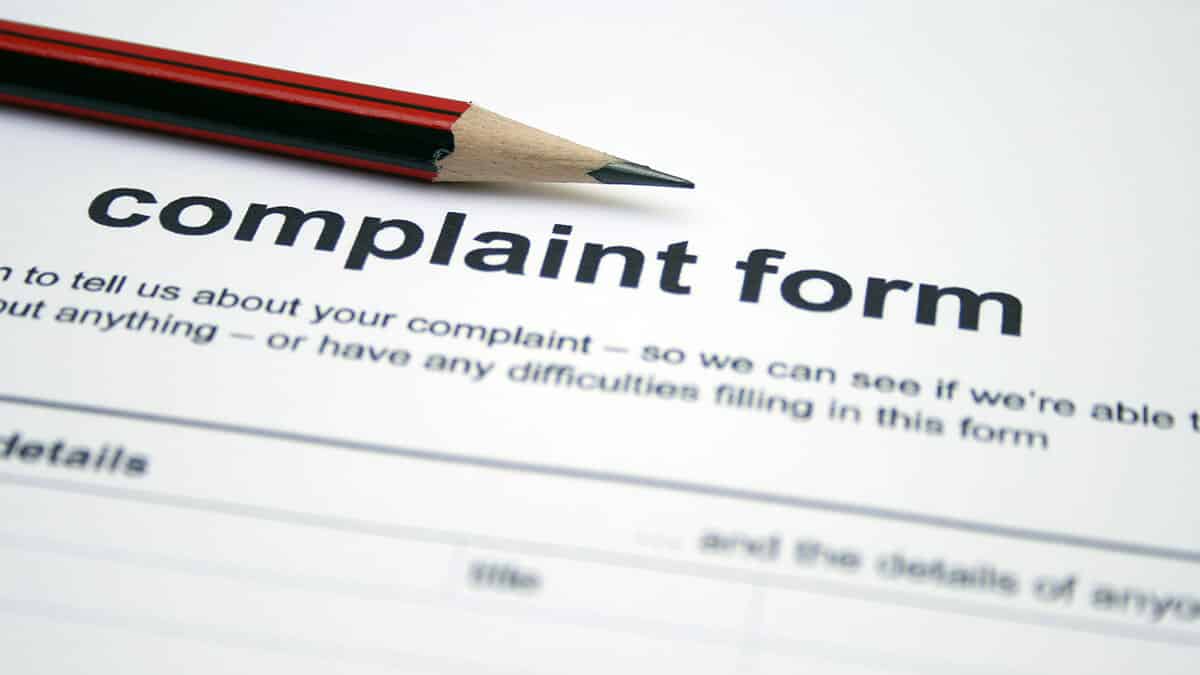In this guide
As your super becomes a bigger component of your personal finances, you inevitably begin to pay closer attention to what’s going on with your fund and the service provided by its insurers and administrators.
Media stories about slow payment of death benefits and the rejection of insurance claims can also make it seem like super funds aren’t helping their members. In 2023–24, there were 7,325 complaints about super products made to the Australian Financial Complaints Authority (AFCA).
Although this sounds like a lot, it compares favourably to the number of complaints about other financial products. During the same financial year, AFCA received 60,076 complaints about banking and financial products and 29,335 complaints about general insurance.
But if you are unlucky enough to have a problem with your super fund or the information it has provided to you, there is a clear path for making a complaint and getting your fund to review your problem.
How to make a complaint about your super fund
When making a complaint, it’s important to do things the right way if you want to make the process as smooth as possible – and have the best chance of getting your issue resolved successfully.
Step 1: Work out what you are complaining about
Although it sounds silly, it’s important to consider exactly what your super fund has done that you want to complain about:
- Ensure you can explain your problem clearly and stick to the facts.
- Think about the issue you have and what actions you would like your fund to take to resolve the problem.
- Write a timeline of events so your super fund – or a third-party arbitrator – can understand what happened in relation to your complaint.
- Collect any relevant documents to help support your complaint. These could include your annual member statements, Product Disclosure Statement (PDS) or correspondence from the fund trustee.
- Consider whether you want to authorise someone to make the complaint on your behalf (such as your financial adviser or accountant).
Step 2: Talk to your super fund
If you are unhappy about something your super fund has done, your first port of call should be your fund’s internal dispute resolution (IDR) team. The contact details should be on the fund’s website and in the PDS you received when you joined.
Queries or complaints can usually be made using an online form, or via telephone, email, or post. In most cases, it is best to write out your complaint in full to ensure you cover everything you want to say. If it’s easier for you, however, it’s acceptable to phone the fund to discuss your complaint, which may lead to a speedy resolution.
The super fund will then acknowledge your complaint and investigate further with the relevant internal team or its insurer. Funds are required to investigate all complaints fairly and provide both a written response and information about what to do if you are not satisfied.
A response from your super fund must be within a set time period (usually 45 days), but if it is a complex issue requiring more time, the fund should let you know and keep you updated on progress.
Once a decision has been made about your complaint, the fund will write and inform you about its decision and the reasons supporting it.
If you are dissatisfied with the decision, the complaints handling process itself, or the timeliness of your fund’s response, you may be eligible to make a complaint to AFCA. This usually needs to occur within two years of receiving your fund’s response.
Step 3: Complain to the Australian Financial Complaints Authority (AFCA)
Your next step, if you are dissatisfied with your fund’s IDR process, is to submit a formal complaint to the Australian Financial Complaints Authority.
AFCA is a free dispute resolution scheme set up by the federal government to provide assistance with complaints about super products. It acts as an independent and impartial ombudsman, which means it doesn’t act on your behalf or on behalf of your super fund.
Super complaints made to AFCA are subject to special rules and requirements. Unlike complaints about other financial products made to AFCA, there are no monetary limits in relation to super complaints, although specific time limits do apply.
Only certain people are permitted to make complaints. These include the member holding the super product, anyone with an interest in a super death benefit (including someone acting for a member’s estate), someone insured through super, holders of a retirement savings account, and parties to a Family Law agreement affecting a super product.
Once you submit your complaint to AFCA, it will be referred to your super fund for review. The fund must try to resolve it directly with you before AFCA will consider the complaint.
AFCA has a two-step complaints resolution process:
- If your complaint is not resolved by your super fund, AFCA works with all parties to try and achieve a settlement using informal methods such as negotiation and conciliation.
- Where this does not work, AFCA makes a determination (or decision) on the complaint, which is binding on the financial provider.
You can complain to AFCA online (which requires you to create an AFCA Portal account) or download a copy of the AFCA complaint form to complete and mail.
What super complaints will AFCA review?
Unfair or unreasonable decisions and the related conduct of:
- Trustees of a regulated super fund (but not an SMSF), including an insurer’s decision about insurance provided through your super account
- Trustees of an approved deposit fund (ADF)
- Life companies issuing a superannuation annuity product
- Retirement savings account (RSA) providers
- Trustees of a small APRA fund
- Trustees of a life policy fund’s decision about admitting a member to the fund
- Trustees in relation to a declined application for release of money in severe financial hardship (in certain circumstances).
Sales conduct of:
- Life companies selling a super annuity product
- RSA providers, when opening an RSA
- Insurers selling an insurance contract when premiums are paid from an RSA.
Decisions or conduct of:
- Agents acting on behalf of a super provider. Complaints about a super provider’s employees or representatives are typically dealt with as a complaint about the provider.
What super issues can and can’t I complain about?
Before rushing off to lodge a complaint about your super fund with AFCA, it’s important to check whether it has the power to deal with your complaint.
AFCA will not consider super complaints about:
- Your employer’s failure to pay super contributions or payment of an incorrect SG amount. (You should complain to the ATO instead, so see the section below.)
- Life insurance products that are not superannuation annuity policies. (AFCA deals with these complaints under its general jurisdiction.)
- Annuities not issued by a life company, such as those issued by a friendly society. (AFCA deals with these complaints under its general jurisdiction.)
- Financial advice relating to super if the financial adviser was not acting under the fund trustee’s Australian Financial Services Licence when providing the advice. (AFCA deals with these and other financial advice complaints under its general jurisdiction.)
- Complaints that have already been dealt with by a Court or the Superannuation Complaints Tribunal.
- Complaints about the management of the super fund, the RSA provider or insurer as a whole.
*Complaints considered under AFCA’s general jurisdiction are subject to monetary limits.
How can the ATO help with super complaints?
Although your employer is not a financial adviser or a super fund, employers play an important role in the super system because they are legally required to make regular Super Guarantee (SG) contributions on behalf of their employees.
If you believe your employer has not made contributions on your behalf or has not been paying enough SG, you can complain to the ATO.
The tax regulator is responsible for ensuring employers meet their SG responsibilities and can help chase up your unpaid super contributions.
A good place to start is to use the ATO’s web tool – Report unpaid super contributions from my employer – to let the ATO know your employer has not paid its required super contributions. The ATO will then start to investigate and report back to you via your myGov inbox or by mail.
The ATO’s web tool can also be used if your employer has paid your super late or paid your super into the wrong super fund.
You can also contact the ATO’s tip-off line on 1800 060 062 if you want to keep your identity confidential.
Get more guides like this with a free account
better super and retirement decisions.


Leave a Reply
You must be logged in to post a comment.